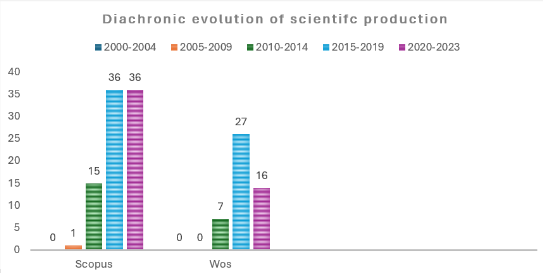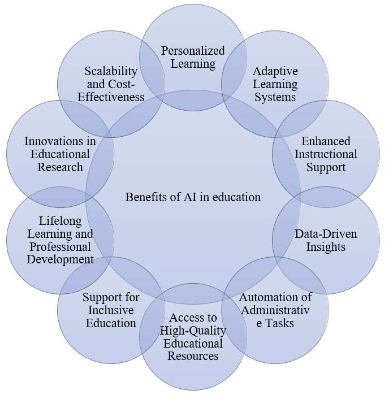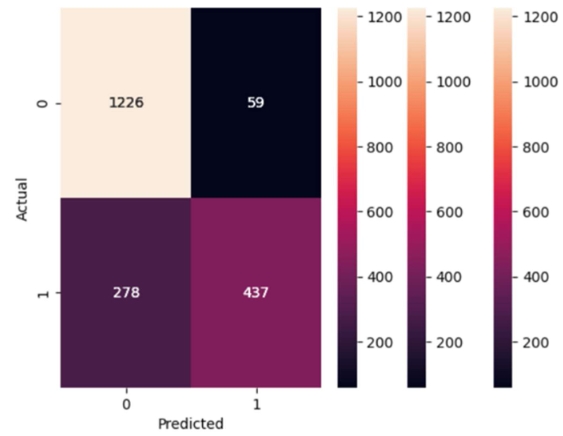




 Open Access
Open Access
Article
Article ID: 1552
by Amaka Yvonne Okafor
Forum for Education Studies, Vol.2, No.4, 2024;
This study explored the significance of including the study of some unrecognized Igbo cultural heritage into the primary education curriculum through the lens of Afrofuturism/African futurism. Drawing from data sourced from interviews conducted among individuals aged 75 years and above, this study illuminates the cultural, nutritional, and educational dimensions of integrating these elements into early education. From an Afrofuturist perspective, education serves as a vehicle for cultural preservation, empowerment, and envisioning alternative futures rooted in African heritage. The inclusion of this yet to be recognized aspect of Igbo cultural heritage in the curriculum not only imparts knowledge of traditional culinary practices and medicinal uses but also fosters a sense of cultural pride and connection among younger generations. By engaging these Igbo cultural heritage with students at a young age, they will develop a deeper understanding of their cultural identity and heritage, which will contribute to a more inclusive and diverse educational experience. More so, the study highlights the potential benefits of integrating indigenous knowledge systems into formal education, promoting sustainability, environmental stewardship, and community resilience. Through hands-on learning experiences related to agriculture, nutrition, and cultural studies, students are equipped with practical skills and critical thinking abilities essential for navigating future challenges like how to improve scientifically the use of the seeds and vegetables mentioned for the betterment of humans’ health as well as checkmate the abuse of them through unconscious overdose usage by people which leads to the damages of the organs of the body. In conclusion, integrating the study of indigenous vegetables and seeds into the primary education curriculum offers a transformative opportunity to cultivate cultural identity, foster intergenerational knowledge transfer, and advance Afrofuturist/African futurist visions of inclusive, empowered futures for African societies.
 Open Access
Open Access
Article
Article ID: 1517
by Hans Kaushik
Forum for Education Studies, Vol.2, No.4, 2024;
The Indian higher education system faces significant challenges in integrating value-based education, sustainability, and consciousness, often prioritizing academic achievements over holistic development. This case-based research explores how Dayalbagh Educational Institute (DEI) effectively addresses these challenges by incorporating sustainability, value, and consciousness into its educational framework. DEI was selected for its distinctive approach, which emphasizes moral and social responsibility, fostering not only academic success but also the ethical development of students. The study draws on document analysis and observations to illustrate how DEI’s educational practices serve as a model for other institutions. The research underscores the urgent need for educational reforms in India that go beyond traditional metrics of success, addressing the gaps in moral education and sustainable practices. By fostering critical thinking, ethical decision-making, and social responsibility, DEI demonstrates how an education system can prepare students for future challenges while promoting a deeper consciousness about their role in society. The findings suggest that integrating value-based education with sustainability and consciousness not only enhances students’ holistic development but also contributes to broader goals of national development. DEI’s model offers practical insights and evidence for other educational institutions to adopt similar strategies, ensuring that future generations are better equipped to address societal challenges with a strong ethical foundation. This research thus provides a comprehensive view of the essential elements needed in modern education to create responsible and conscious global citizens.
 Open Access
Open Access
Article
Article ID: 1621
by Nji Clement Bang, Florence Ndfuto Takop
Forum for Education Studies, Vol.2, No.4, 2024;
This article investigates the situating of inservice teacher training (TT) in teaching-learning, education, and other sector reform communities for developing holistic competence to engage practice. It vignettes a holistic inservice TT resilience to situate in an often transient reform community of developing capacity to engage practice, including competence-based education (CBE) reform that often spews vague ideas in pieces amid low incentive and commitment to undergo practice. To assist, this article adopts the situated learning lens to investigate the extent to which contextualising inservice TT in authentic teaching-learning reform community resources develops competence to engage practice. In this holistic regard, the article mixes text, interview, and questionnaire methods involving 420 Cameroon inservice TT-CBE reform community subjects as part of the global education-for-all-practice reform flow. From findings, few teachers undergo narrow inservice training and lead few partners in reform oration, resenting few means and evading complex teaching-learning reform community practices. Inservice TT’s bare oration of public education policy and reform community changes prepares teachers to facilitate teacher-centred acquisition of less competence than what learners need to engage practice. The article opines ongoing inservice TT preplanning-research, onsite activity, and outcome sustainability themes to further situate in authentic reform community resources to develop holistic competence to engage complex practice.
 Open Access
Open Access
Article
Article ID: 1600
by Blessed F. Ngonso, Peter E. Egielewa, Giuseppe T. Cirella
Forum for Education Studies, Vol.2, No.4, 2024;
This study examines the application of ethical principles within Nigerian tertiary institutions, with a specific focus on mass communication departments, including journalism, public relations, and advertising, across selected higher education institutions. Utilizing an online questionnaire distributed to students and conducting interviews with lecturers, the research assesses the extent of ethical practices and their effects on both students and staff. This study critically reviews the existing literature on Nigeria’s higher education system, ethical awareness in higher education, and ethics implementation at the departmental level, guided by rule utilitarianism. The findings indicate that despite lecturers’ repeated efforts to educate students on the importance of upholding ethical values, exam malpractice remains the most prevalent ethical issue plaguing mass communication departments. It is recommended that ethical orientation begin in adolescence to shape the development of Nigerian youth. Additionally, ethics should be incorporated into the educational curriculum at all levels, from primary to tertiary education.
 Open Access
Open Access
Article
Article ID: 1568
by Francisco José Hernández-Valverde, Mónica Vallejo
Forum for Education Studies, Vol.2, No.4, 2024;
The evaluation of science is essential to ensuring the quality, validity, and reliability of scientific results. Science needs to undergo a review process to ensure the rigorousness of scientific output. This evaluation provides a solid basis for political and economic decisions related to the design and execution of research projects, the establishment of new lines of research, or the identification of areas of specialization. This paper analyses diachronically the Spanish scientific production related to the implementation and development of teaching methodologies in primary education and indexed in the Scopus and Web of Science databases during the period 2000–2023. This analysis is carried out on the one hand, from a scientometric perspective, based on the analysis of indicators such as diachronic production, the journals with the highest scientific productivity, and the most productive institutions, and, on the other hand, from a conceptual perspective, trying to define its relationship with other areas of education. The general results of this study reveal two clear stages: the first, up to 2010, with little scientific production; and the second, from 2011 onwards, characterised by a general growth. The relationship between this field and others such as initial teacher training, ICT, and didactics is also evident.
 Open Access
Open Access
Article
Article ID: 1583
by Moh. Ferdi Hasan, Diana Monita, Aninditya Sri Nugraheni
Forum for Education Studies, Vol.2, No.4, 2024;
This study analyses the patterns of Javanese and Madurese language use among primary school children in Jember, Indonesia, where the two ethnic cultures meet. Using a descriptive qualitative approach, data were collected through observations, interviews and questionnaires on 50 primary school students, 6 teachers and 10 parents from three different schools. Results show a clear diglossia between Indonesian for education and the regional language (Javanese/Madurese) for informal interaction. Children code-switch between these languages flexibly depending on the social context. Families play an important role in the maintenance of regional languages, while schools and digital media such as YouTube tend to encourage the use of Indonesian. Although regional languages are still strong, national/global influences are increasingly driving the use of Indonesian, reflecting the tension between local identity and national/global demands that children face. This research provides insight into the sociolinguistic dynamics in a region with two dominant languages.
 Open Access
Open Access
Article
Article ID: 1646
by Elizabeth Akpanke Odey, Justus Onyebuchi Okafor, Gabriel Ajor Eneji, Ekpenyong Obo Ekpenyong
Forum for Education Studies, Vol.2, No.4, 2024;
The acquisition of essential skills and knowledge is considered a primary aim of education to effectively navigate and succeed in various aspects of life. In modern times, the role involves proactive engagement in a society that is rich in information, where knowledge is considered the primary driver for the socio-cultural and politico-economic progress of nations. The teaching and learning of religious education has not fully utilized the abundant resources available in the Information and Communication Technologies (ICT) era, owing to several limitations. This study analyzed the current status of religious education during this era, as well as the factors that facilitate, inhibit or hinder the integration of ICT in Nigerian basic education level. The research provides recommendations for the effective integration of ICT initiatives in the teaching of Christian religious education within Nigerian basic education level in the contemporary era. The study employed quasi-experimental design. The research suggests that it would be beneficial for Nigerian basic education level to be equipped with contemporary computer laboratories by the appropriate authorities, for the benefit of both basic education level students and teachers.
 Open Access
Open Access
Article
Article ID: 1564
by Irum Zeb, Yan Zhang, Aashiq Khan
Forum for Education Studies, Vol.2, No.4, 2024;
This study explores the intricate relationship between teacher self-efficacy and classroom management practices in secondary schools in the Mansehra district of Pakistan. Teacher self-efficacy, defined as the belief in one’s ability to manage and influence classroom environments effectively, has been identified as a critical factor influencing both teaching performance and student outcomes. The research employed a mixed-method approach, gathering data from 62 teachers and 310 students using both online surveys (via Google Forms) and physical questionnaires to ensure a diverse and inclusive participant pool. Data analysis was conducted using two complementary tools: SPSS and Smart PLS. SPSS was used for descriptive statistics and inferential analyses, such as t-tests, chi-square tests, and measures of central tendency, to offer an overview of group differences and relationships between variables. Meanwhile, Smart PLS was employed for Partial Least Squares Structural Equation Modeling (PLS-SEM), a technique suited for complex models and smaller sample sizes. This method allowed for the analysis of both direct and indirect relationships between the study variables—teacher self-efficacy, teaching practices, and classroom management. The findings reveal a significant positive correlation between teacher self-efficacy and classroom management practices. Additionally, teaching practices were found to mediate this relationship, indicating that higher levels of self-efficacy not only directly improve classroom management but also enhance teaching performance, which in turn contributes to better-managed classrooms. These results suggest that interventions aimed at enhancing teacher self-efficacy can have far-reaching effects on educational outcomes. The study highlights the need for focused teacher development programs that foster self-efficacy, thereby improving classroom management, student engagement, and overall academic success.
 Open Access
Open Access
Article
Article ID: 1609
by Maximilian Nothaft, Laurenz Kotthaus, Eva Groth, Mihai Rominu, Rüdiger Junker
Forum for Education Studies, Vol.2, No.4, 2024;
 Open Access
Open Access
Article
Article ID: 1494
by Ann Ngozi Ugobueze
Forum for Education Studies, Vol.2, No.4, 2024;
This study examined the challenges and prospects of educational supervision in the Onitsha Education Zone, Anambra State, Nigeria. It aims to identify key problems, underlying causes, and viable solutions to enhance supervision effectiveness and improve the quality of education. The study used a descriptive survey design to understand opinions in Onitsha Education Zone, Anambra State. It involved 290 teachers and 10 principals from 10 secondary schools, selected randomly. Data was collected via a validated questionnaire on educational supervision. Analysis was done using mean and standard deviation, with a 2.50 acceptance threshold. Findings reveal significant challenges including bribery, corruption, inadequate funding, poor road conditions, and staffing issues. Positive prospects identified include enhanced standardization, efficiency, and reduction of malpractices. Key causes of these challenges are political instability, frequent policy changes, poor teacher remuneration, and lack of supervisory resources. The study recommends increased government funding, improved infrastructure, skilled staffing, and robust stakeholder involvement to enhance educational supervision and ensure quality education.
 Open Access
Open Access
Article
Article ID: 1735
by Luc Gougeon, Jeffrey S. Cross
Forum for Education Studies, Vol.2, No.4, 2024;
Japanese elementary schools introduced programming education in 2020, but are Japanese educators better equipped to teach this new subject? Most programming education research focuses on children. Unfortunately, educators are often overlooked. In this research, elementary schools in five Japanese prefectures were visited to understand better in-service educators’ tasks and preparedness in teaching programming. An electronic survey was distributed to twenty-five schools, augmented by interviews with school principals. Data shows that while educators are recently better equipped to teach programming education compared to 2020, much work remains to be done in offering teachers pre-service training and lifelong learning opportunities. This paper provides insight into better professional development for Japanese elementary educators in programming education.
 Open Access
Open Access
Article
Article ID: 1832
by İbrahim Halil Topal
Forum for Education Studies, Vol.2, No.4, 2024;
The significance of emotions in language education is increasingly acknowledged as a crucial element that impacts both teaching and learning. This article delves into the role of Emotional Intelligence (EI) in enhancing the language learning experience, emphasizing the importance of perceiving, using, understanding, and regulating emotions. Educators, as integral to the learning process, can cultivate more inclusive, supportive, and effective learning environments by integrating emotional awareness and regulation strategies into language teaching. This holistic approach to language education intertwines cognitive and emotional development, emphasizing the practical implications for educators in fostering EI in the language classroom to improve learner engagement and success.
 Open Access
Open Access
Article
Article ID: 1761
by Haowei Chen, Ting Hu, Ena Bhattacharyya, Ushba Rasool
Forum for Education Studies, Vol.2, No.4, 2024;
This qualitative study explores the perceptions of Chinese teachers and students regarding the implementation of communicative language teaching (CLT) in Business English (BE) courses. A total of 24 BE students and 14 teachers from 4 colleges in Sichuan, China, participated in the semi-structured interview. Furthermore, the researcher observed 16 BE courses to investigate the actual implementation of CLT by Chinese teachers and students. The findings indicate that adopting CLT in the context of BE in China remains challenging. While teachers and students generally hold positive views about CLT, classroom practices diverge significantly from CLT principles. Several challenges contribute to this misalignment, including the English proficiency levels of students and teachers, teaching facilities, class sizes, examination systems, textbooks, and teachers’ understanding of CLT. These challenges highlight a disconnect between CLT’s pedagogical goals and its practicality in the current landscape of Chinese BE education. The study emphasizes the need for comprehensive educational reforms to address these issues, aiming to bridge the gap between CLT’s theoretical ideals and effective implementation. Ultimately, this could enhance the communicative effectiveness of BE teaching in China.
 Open Access
Open Access
Review
Article ID: 1540
by Syed Kaleem Ullah Shah Bukhari
Forum for Education Studies, Vol.2, No.4, 2024;
The field of higher education has not only been for elites since the last three decades. It has also included the general masses in it. That’s why the transformation of the socio-economic status and general awareness in the present age owes to higher education. On the other hand, challenges have also emerged and set conditions on the path to sustainability. Thus, higher education has faced problems, especially financial problems. These issues further give birth to some other issues. This study is an attempt to understand the issues caused by financial issues. The study also aimed to propose strategies to deal with these issues. Based on the systematic literature review, the problems have been categorized as lack of internet, digitalization, and online teaching; underdeveloped infrastructure for STEAM; lack of priorities; and quality issues. These findings create hurdles in achieving the quality of HEIs. To cope with these issues, clear policy and setting priorities were proposed as the top most important strategies to bring about quality and achieve HEIs’ organizational objectives. It can be concluded that HEIs need appropriate strategic and financial managers and administrators who can align their strategy with the vision and mission of the institutions.
 Open Access
Open Access
Review
Article ID: 1599
by Yicheng Cai, Honggang Liu
Forum for Education Studies, Vol.2, No.4, 2024;
The current study reviewed and synthesized empirical research on foreign/second language teacher emotional intelligence (EI) using a scoping review approach. Specifically, 15 articles published between 2018 and 2024 were included and analyzed with a particular emphasis on the theoretical perspectives, research themes, research background, and methodologies. The results indicated that there were a variety of models and theories in language teacher EI research, with the trait EI model and theories of self-efficacy and emotion regulation receiving the most attention. Moreover, most reviewed studies regarded language teacher EI as an independent variable or antecedent, examining its impact on other individual and environmental variables. Underdeveloped regions, other target languages apart from English, multilingual teachers, and primary or secondary school teachers haven’t received much attention in the included articles. Additionally, homogenization in research design among these studies was noticeable, with quantitative studies, cross-sectional design, and self-reported questionnaires being prevalent. Finally, implications were provided based on these findings for the further development of language teacher EI.